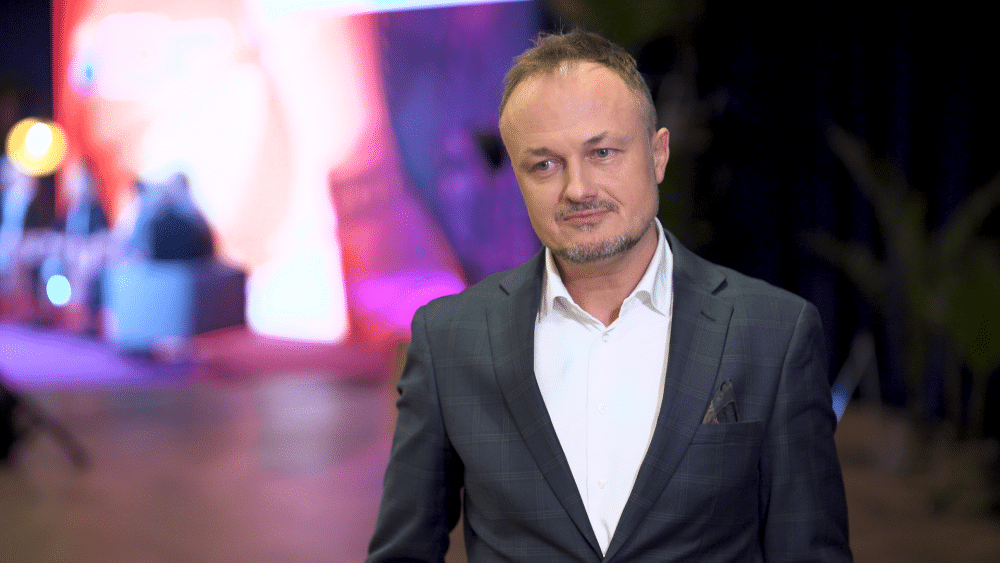“Reforms of the Polish education system do not improve its efficiency, as it is still a system based on grading, not encouraging the search for new solutions,” evaluates Dr. Krzysztof Rzepkowski, president of the board of Sandler Training Poland. Companies are looking for innovative workers capable of critical thinking and teamwork, but most graduates leave schools and universities in fear of failure or focused on competition rather than cooperation. According to the expert, Poland lacks an ecosystem that would provide a space for creative group work. “You can finish faster on your own, but a team can go further,” he emphasizes.
“We don’t really have an ecosystem for growth and development, but rather a constant system of evaluation. One that says, ‘don’t go inside, you’ll fall’, ‘don’t try new, undiscovered roads’. It makes me wonder why we justify this system, despite everyone feeling its inefficiency,” says Dr. Rzepkowski, president of Sandler Training Poland, a company that conducts sales training.
As he emphasizes, the source of many of the problems with Poles’ soft skills may lie in the education system.
“An ecosystem is a place where people feel good, where they can develop their competencies, where they have the right to fail, where they can make mistakes. How can I make mistakes here? If I get marked as average for throwing a medicine ball too close, it should be ‘try again’ instead of a grade. Of course, I can try again, but I was evaluated,” says the expert.
According to him, several years of education under conditions of pressure, assessment, and fear cause graduates to lack courage in seeking new paths, lack skills in teamwork, empathy, and therefore the ability to establish relationships, to communicate non-violently, to ask questions, and active listening. These are skills they have to acquire as employees during training.
“Innovativeness, group work, synergy, and critical thinking are catchphrases for future competencies. We all expect these competencies when recruiting people to our businesses, only to find that the people coming out of this 20-year education system are actually contrary to this. We have to teach them these skills,” emphasizes the president of Sandler Training Poland.
To change the education system, a serious, engaged, social debate is needed at the outset, which is currently absent from the public discourse. Today, the discussion on this subject is limited to pedagogical talks or meetings with parents.
“We had elections and none of the parties even touched on this topic, because education is a subject that one should better not touch after various reforms. So first there must be a social discussion, first there must be an awareness that here is the source of many problems that we have,” the expert adds.
The reform of the education system should, in his opinion, focus on innovativeness and the ability to work in a group.
“There is a saying, ‘don’t give people fish, give them a fishing rod’, meaning teach them to fish, to catch, and I say, ‘don’t give people either fish or rods’. Because once they have rods, they will quickly start to compete with each other about who catches more, and they will never consider what to do to create a different way of fishing, they will never invent a boat, they will never go to the high seas, they will always be sitting over the pond and competing with each other,” explains Dr. Krzysztof Rzepkowski.
Ironically, it is precisely soft skills that are the field of functioning in which artificial intelligence cannot threaten humans, but on the contrary, they can help us to use AI for the purposes we want to achieve. Krzysztof Rzepkowski is convinced that artificial intelligence is a human invention like any other, though revolutionary and transformative to our lives, the economy, and the job market. It should be treated as a tool in human hands, a complement, not competition or threat.
“In 1996 there was a famous battle between Kasparov and a computer. The whole world was rooting for Kasparov saying, ‘let him win, because he is the last hope of humanity’. Kasparov lost and some said, ‘the end of man, the time of machines has come, they are superior to us in intelligence’. A simple calculator can calculate faster than the fastest human, so we can’t compete there,” convinces the president of Sandler Training Poland. “For me, artificial intelligence should be treated not as a competitor or enemy, but as a partner, a tool. But if we don’t possess humanistic, soft skills for working together, for collectively utilizing AI, then it will either benefit us or devour us.”
